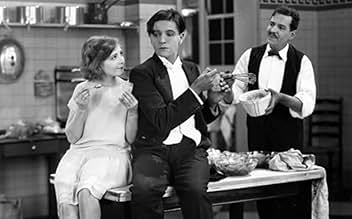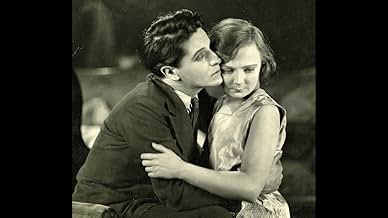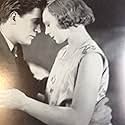Sanger, an eccentric expatriate composer, dies in his house in the Austrian Alps, leaving his daughters penniless. Young composer Lewis Dodd, a longstanding friend of the family, falls in lo... Read allSanger, an eccentric expatriate composer, dies in his house in the Austrian Alps, leaving his daughters penniless. Young composer Lewis Dodd, a longstanding friend of the family, falls in love with their cousin Florence when she comes to take the girls back to England. But little... Read allSanger, an eccentric expatriate composer, dies in his house in the Austrian Alps, leaving his daughters penniless. Young composer Lewis Dodd, a longstanding friend of the family, falls in love with their cousin Florence when she comes to take the girls back to England. But little Tessa Sanger is in love with Lewis herself, and when she runs away from school and comes ... Read all
- Lady
- (uncredited)
Featured reviews
But Tessa and her sister run away from school and move in with Lewis after he has stupidly married the ambitious Florence. Florence and Tessa clash constantly and things come to a head during a disastrous party. Florence's dream of social success success are smashed after Lewis runs away with Tessa after the sensational debut of his new symphony. Can Lewis and Tessa find happiness together? The ethereal Mabel Poulton plays Tessa: a mountain nymph, a school girl, a muse. Ivor Novello is Lewis, a man confused by his love for a girl. Frances Doble plays the harsh Florence.Others in the cast include Mary Clare as the hag stepmother. Also Benita Hume and Elsa Lanchester.
Ivor Novello and Mabel Poulton were among the biggest stars of their time. Now, they are sadly forgotten. They make a splendid cinematic team. Neither one had much success in talkies.
It is to the credit of the writers and Novello and Poulton that this particular love story does not appear unsavoury, given the age gap between the principals. Dodd is something of a comic part for Novello in the first half of the film, as he deals with Sanger family he is visiting with amusement (especially the blousy wife of Sanger who can't wait to depart the house taking as much as she can get). Later in the film his dramatic style comes to the fore - never the world's greatest actor, Novello is still a pleasant presence on the screen and easy to watch.
Partly filmed in Austria and partly in London's Queen's Hall (the concert hall which was bombed in the war), 'The Constant Nymph' looks great and has lots of atmosphere. There are supporting players a plenty who are well worth watching (including Benita Hume, Frances Doble, JH Roberts, Mary Clare and Elsa Lanchester. We watch with amusement as Lewis Dodd is ensnared by a society lady who wants to further his career - much against his wishes. We laugh along with the mischief making Sanger sisters, and commiserate with the crusty Cambridge professor. We watch the awkward courtship between Toni and Ike, and wonder when Tessa's love for Lewis will be reciprocated.
Finally, due to the lightness of what's gone before, we are shocked and moved by the ending, which should not be unexpected, but which is beautifully played out. A gem of a film.
Gaumont-British spared no expense in shooting this movie, with location photography in the Tyrolean Alps and impressive credits behind the camera -- not only avant-garde director Brunel, but Basil Dean and Alma Reville as screenplay writers. Novello is superb in his role, moving easily from comedy to tragedy in a way that reminded me of Fredric March a decade later. Poulton is also beautifully nuanced, and even Miss Doble performs her semi-villainous role with an air that made me sympathize with her.
What the beautifully tinted print I saw lacked, I realized, as I watched the final quarter hour, was a score. Perhaps there was one composed and played live in the major houses when this premiered ninety years ago. If so, I can find no record of it. For a movie about a symphonic composer -- two composers, actually -- to be presented with a piano or a drop-needle score is almost a burlesque. A movie like this requires a major score, and watching it without one is like watching a ghost; no matter how used to battered prints and poor presentation a longtime fan of silent movies may be, it eats away at the pleasure of watching what so obviously was a great movie to see it presented without the score it requires.
Did you know
- TriviaIt was long thought that no prints of this film survived. However, the British Film Institute's 1992 "Missing Believed Lost" campaign led to the recovery of a copy; this was shown at the National Film Theatre in London, England.
- Crazy creditsDirected by ADRIAN Brunel - Under the personal supervision of BASIL DEAN
- ConnectionsFeatured in Forty Minutes: Talking Proper (1985)
Details
- Runtime1 hour 50 minutes
- Sound mix
- Aspect ratio
- 1.33 : 1
Contribute to this page


















